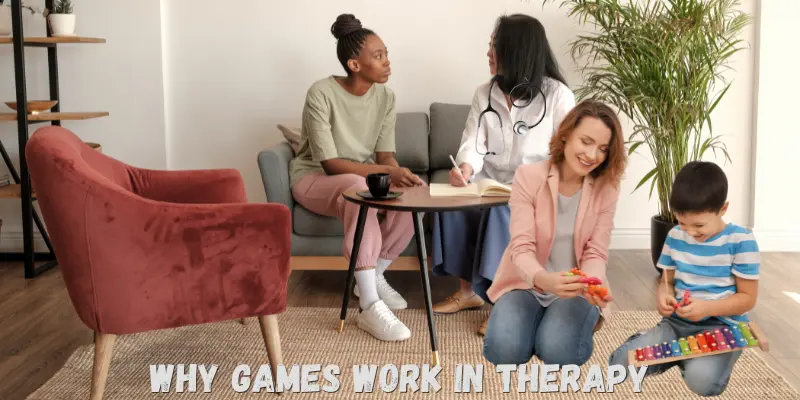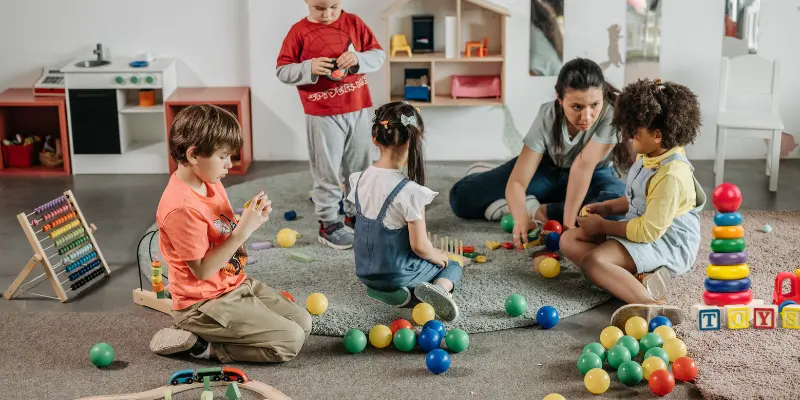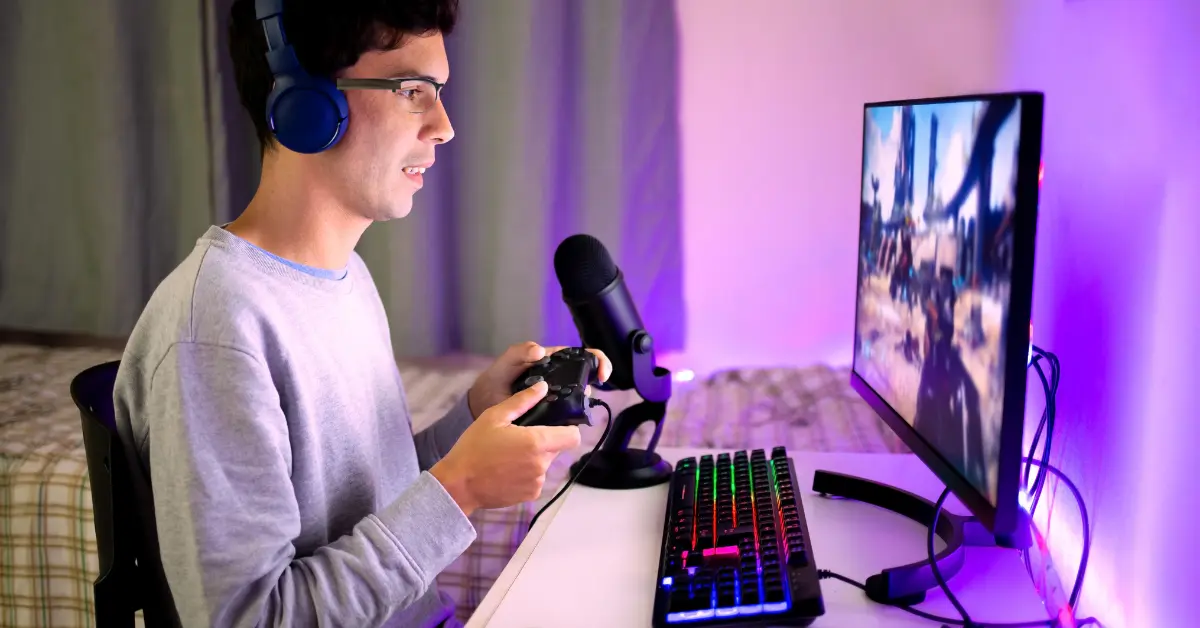Occupational Therapy Games are fun and smart ways to help children and adults build important life skills. These games are not just for play they support learning, movement, focus, and confidence. Whether someone has trouble with writing, balance, or talking with others, these games can make a big difference.
Occupational therapy games turn hard tasks into simple, playful steps. They are used by therapists, teachers, and parents at home or in schools to help people grow stronger, calmer, and more independent one game at a time.
Why Games Work In Therapy
Occupational Therapy Games are powerful because they make learning feel like play. When people enjoy what they are doing, they stay focused longer and try harder. These games help build motor skills, thinking skills, and emotional control without stress.

In occupational therapy games turn hard exercises into fun activities. This makes it easier for children and adults to improve their abilities without feeling tired or bored. That’s why therapists use games to keep the mind active, the body moving, and progress steady.
You need to visit this link: Radiant Sports
Types of Occupational Therapy Games
Occupational Therapy Games come in many types, each designed to support a different skill in a fun and friendly way. Here are the main types:
1. Fine Motor Games
These games improve small hand movements using tasks like picking up beads, placing blocks, or using tweezers for better control.
2. Gross Motor Games
Used to build strength and balance, these games include jumping, climbing, or throwing activities that move large muscle groups.
3. Sensory Games
Help with touch, sound, and movement response using tools like textured bins, water play, or sound-based matching games.
4. Cognitive Games
Support memory, attention, and problem-solving through puzzles, matching cards, or simple thinking challenges.
5. Social-Emotional Games
Encourage expression and communication through role play, turn taking games, or emotion-based storytelling.
How To Choose The Right Game In Occupational Therapy Games
Occupational Therapy Games should match the person’s age, needs, and ability to be effective and enjoyable. Here are key points to consider:
- Skill Level: Pick a game that matches the person’s current abilities not too hard, not too easy to keep them interested.
- Therapy Goal: Choose a game based on the skill you want to improve, like balance, hand control, or memory.
- Age Appropriateness: Make sure the game is right for their age so they stay engaged and understand how to play.
- Environment: Select games that fit your space some games need room to move, others just a small table.
- Interests: If the game is fun or matches the person’s hobbies, they will be more likely to play and benefit from it.
Safety & Adaptation Guide In Therapy Games
Occupational Therapy Games should always be safe and adjusted to fit each person’s needs. Keep these important points in mind:
- Supervision: Always watch the child or adult during play to avoid accidents or misuse of objects.
- Material Safety: Use non-toxic, soft, and age-appropriate items to prevent injuries or choking risks.
- Space Setup: Make sure the area is clean, open, and free of sharp objects or slippery surfaces.
- Game Modification: Adjust the game rules or tools to fit physical or cognitive abilities without changing the goal.
- Comfort First: Choose positions and tools that support the person’s body so they feel relaxed and safe during play.
Tips For Parents And Teachers In Occupational Therapy Games
Occupational Therapy Games can be more helpful when adults guide play with care and positivity. Here are useful tips to follow:

- Keep It Simple: Use clear, short instructions so the child understands what to do without confusion.
- Be Encouraging: Always cheer small wins with smiles, claps, or kind words to boost confidence.
- Stay Patient: Let the child take time to learn do not rush or pressure them to get it right quickly.
- Adapt When Needed: If a game is too hard or too easy, change the rules slightly to match the child’s level.
- Be Consistent: Play regularly, even for a few minutes daily, to build steady improvement over time.
You need to visit this link: Gambling Game Crossword
Advantages and Disadvantages Of Occupational Therapy Games
Occupational Therapy Games offer many benefits, but there are also a few things to consider. Here are the key pros and cons:
| Pros Of Occupational Therapy Games |
| Fun with Purpose: Children learn new skills through games without feeling pressure or boredom. |
| Flexible Use: They can be played at home, in school, or during therapy sessions easily. |
| Better Focus: Play based tasks help improve attention and memory naturally. |
| Boosts Confidence: Games allow small successes, which build self-esteem and motivation. |
| Cons Of Occupational Therapy Games |
| Not One-Size-Fits-All: Some games may not suit every child’s needs or ability. |
| Need for Supervision: Games must be monitored to avoid misuse or safety issues. |
| Can Become Repetitive: Without variation, the child may lose interest over time. |
| Limited Impact Alone: Games work best when combined with professional guidance and routine. |
Common FAQs about Occupational Therapy Games
Occupational Therapy Games raise many common questions from parents, teachers, and caregivers. Here are clear answers to a few of them:
What are Occupational Therapy Games?
They are playful activities used to build life skills like movement, focus, or hand control.
Who can use these games?
Children and adults with physical, sensory, or learning challenges can benefit from them.
Are these games only for clinics?
No, they can be used at home, in classrooms, or anywhere with simple tools and space.
Do I need a therapist to use them?
A therapist helps, but many games can be played safely with parent or teacher guidance.
How long should each game last?
Just 10 to 20 minutes of focused play can bring helpful results without tiring the player.
Conclusion
Occupational Therapy Games are a smart and playful way to support learning, movement, and growth. They help children and adults gain real-life skills without stress. Whether used at home, school, or therapy sessions, these games make progress fun, safe, and meaningful. With the right game, a little time, and a caring guide, every small step can lead to big improvement.




